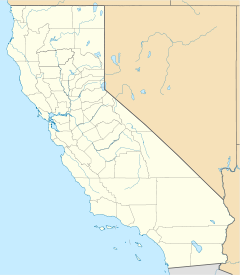Marines' Memorial Club
| Marines' Memorial Club | |
|---|---|
 The Marines' Memorial Club and Hotel | |
 Marines' Memorial Club Location within San Francisco | |
| Former names | Western Women's Club |
| General information | |
| Architectural style | Spanish Colonial-style |
| Address | 609 Sutter Street |
| Town or city | San Francisco, California |
| Coordinates | 37°47′20.05″N 122°24′37.69″W / 37.7889028°N 122.4104694°WCoordinates: 37°47′20.05″N 122°24′37.69″W / 37.7889028°N 122.4104694°W |
| Completed | 1926 |
| Owner | Marines Memorial Association |
| Technical details | |
| Floor count | 12 |
The Marines' Memorial Club in San Francisco, California at 609 Sutter Street (at Mason), is a private social club for United States Marines and other veterans of the United States Armed Forces. The nonprofit Marines' Memorial Association owns the large building in the Union Square neighborhood of San Francisco that houses a hotel, theater, restaurant/bar, sports club, special event facilities, library, museum, memorial, and a military history bookstore.[1] The facility was built as the Western Women's Club in 1926.
History[]
As a port city, San Francisco has, since its founding by Spain, been associated with military personnel, naval personnel, and merchant mariners. During World War II it was a point of embarkation for many sailors in the Pacific, who would keep fond memories of their few days in the city before leaving for the war.[2]
The Marines' Memorial was opened as a club for veterans of the Marines, although membership is open to all United States servicemembers.[3] Early in 1946, the Commandant of the Marine Corps, General Alexander A. Vandegrift, had proposed a "living memorial" to Marine casualties from the War in the Pacific. A group of Marines arranged to buy a building owned by a women's club at Mason Street and Sutter Street in San Francisco,[1] whose members they had met through their participation in the wartime WAVES program.[4] The club opened on November 10, 1946, the anniversary of the founding of the Marine Corps.[5]
The theater predates the club, and was part of the original 1926 building. In its early days it hosted nationwide radio broadcasts by Bob Hope and Frank Sinatra. It later housed the San Francisco Actor's Workshop, which produced plays by Arthur Miller, Tennessee Williams, and Bertholt Brecht. It was also the first home of the American Conservatory Theater.[6]
Today the association has 21,000 members from all branches of the United States military, NOAA, and the Public Health Service, mostly from California.[7]
Features[]

The Marines' Memorial is housed in a 12-story Spanish Colonial-style building built in 1926 as the "Western Women's Club", a member of the General Federation of Women's Clubs. It was bought by the association in 1946. The most noticeable features are a 650-seat repertory theater and a lobby display of military memorabilia, most notably the ship's bell from the USS San Francisco.[8] It also includes two restaurants (including the club's "Leatherneck Grill" steakhouse) and a Club One fitness center. The building also includes the Tribute Memorial Wall, a private memorial to American troops killed in the Iraq War and war in Afghanistan.[9][10]
See also[]
References[]
- ^ a b "About the Living Memorial". Marines' Memorial Association.
- ^ Carl Nolte (2007-10-04). "Snafus involving Marines in S.F. and Oakland have critics raving". San Francisco Chronicle.
- ^ Carl Nolte (2006-05-29). "Revering those lost to wars:S.F. wall honors casualties in Iraq and Afghanistan". San Francisco Chronicle.
- ^ Skye Jones. "Marines are welcome at the Marines Memorial".
- ^ John Garvey (2007). San Francisco in World War II. Arcadia Publishing. ISBN 978-0-7385-3050-5.
- ^ "Marines' Memorial Theatre". Union Square Theaters.
- ^ "Marines' Memorial Association". Marines' Memorial Association.
- ^ "Ship's Bell". USS San Francisco Memorial Foundation.
- ^ Carl Nolte (2008-03-16). "Examining the war in Iraq after 5 years". San Francisco Chronicle.
- ^ Scott Lindlaw (2007-03-26). "Long before the shooting stops, Americans memorialize war dead". Associated Press.
External links[]
| Wikimedia Commons has media related to Marines' Memorial Club. |
- Clubs and societies in California
- Buildings and structures in San Francisco
- Union Square, San Francisco
- Clubhouses in California
- Theatres in San Francisco
- Gentlemen's clubs in California
- Culture of San Francisco
- Organizations based in San Francisco
- Organizations associated with the United States Marine Corps


